2024 Center for Islamic Legislation and Ethics Virtual Winter School
AI and its Ethical Challenges: Religious and Cultural Perspectives
In Collaboration with
The Leverhulme Centre for the Future of Intelligence, University of Cambridge
24-25 & 27 September 2024
Location: Online, sessions will be held in the British Summer Time Zone
Registration Open for Local and International Applicants
Winter School
The 2024 Center for Islamic Legislation and Ethics (CILE) Virtual Winter School will be hosted in collaboration with the Leverhulme Centre for the Future of Intelligence (LCFI). Together, we will focus on AI and its challenges for religions and cultures.
Artificial Intelligence (AI) presents significant challenges for religions and cultures worldwide. However, AI is often designed, applied, and regulated with little regard to the secular. As AI technologies advance and become part of everyday life, they increasingly intersect with diverse religious practices and cultural norms, raising critical and philosophical questions about how to ethically apply AI in ways that honor the diversity of religious and cultural values. Key issues include the potential for AI to reinforce or mitigate cultural biases, the ethical implications of autonomous systems within religious contexts, and the impact of AI on cultural heritage preservation, to name a few. Moreover, AI's influence on art and cultural production poses challenges and opportunities for various religious and cultural traditions. Addressing these challenges requires a nuanced understanding of AI's capabilities and limitations, informed by cross-cultural and interfaith dialogue.
Religious traditions, including Judaism, Christianity, and Islam, offer invaluable perspectives on justice, equality, compassion, and responsibility, guiding decision-making processes, promoting the common good, and holding individuals and organizations accountable for their actions and decisions. As such, they have much to offer the developing field of AI Ethics.
The two-day virtual seminar (24th & 25th) will provide students and researchers with a diverse array of discussions and collaborative activities related to pressing ethical issues related to AI design, application, and regulation and what these mean for various religious traditions, particularly Islam and Islamic Ethics. Participants will have the opportunity to engage with leading researchers in the field. This year, we are also inviting students to deliver short presentations on topics concerning AI and its challenges for religions and cultures. Proposals will be peer-reviewed, and the selected presentations will be showcased on September 27th. This initiative aims to foster interaction between students, young researchers, and top scholars, enhancing the seminar's collaborative and educational environment. Both undergraduate students and postgraduate students from all over the world are invited to participate.
Organizers
Research Center for Islamic Legislation and Ethics (CILE)
Islamic Ethics is one of the emerging scholarly fields with promising growth potential in academic research and with great appeal among the general public. The Research Center for Islamic Legislation and Ethics (CILE) has been contributing to this emerging field in various ways. Besides organizing international conferences and research seminars, CILE also contributed to the field through pioneer academic initiatives. In collaboration with the renowned publisher Brill, CILE established the Journal of Islamic Ethics and the book series Studies in Islamic Ethics. CILE launched the first-of-its-kind M.A. program “Applied Islamic Ethics” in the academic year 2019-2020 in the College of Islamic Studies at Hamad Bin Khalifa University. The program addresses how Islam, as a world religion with a rich moral tradition, engages with and contributes to the global moral discourse. Its strong interdisciplinary character combines in-depth knowledge of both theoretical and applied ethics rooted in the Islamic moral tradition.
The Leverhulme Centre for the Future of Intelligence
The Leverhulme Centre for the Future of Intelligence (LCFI) is a highly interdisciplinary research centre exploring the nature, ethics and impact of artificial intelligence (AI).
Funded by the Leverhulme Trust, LCFI is based at the University of Cambridge, with spokes at Imperial College London and University of California, Berkeley, as well as close links with industry and policymakers. LCFI brings together academics from a variety of disciplines as diverse as machine learning, philosophy, history, literary studies, engineering, media studies and design in order to explore the possibilities of AI in both the short and long term.
Speakers and Facilitators
In order to adequately cover the various aspects and dimensions of AI Ethics, the speakers in this Winter School will come from different specializations and have different research interests, including Philosophy, Bioethics, Islamic Ethics, Gender Studies, Postcolonial Studies, and Social and Cultural Studies. The current provisional list of speakers will include the following:
- Dr. Mohammed Ghaly: Professor of Islamic Bioethics (CILE)
- Dr Eleanor Drage: Senior Research Fellow (LCFI)
- Dr. Samer Rashwani: Senior Researcher (CILE)
- Dr. Mutaz Al-Khatib: Associate Professor of Methodology and Ethics (CILE)
- Dr. Aisha Sobey: Research Programme Coordinator and Research Fellow (LCFI)
- Dr. Reham Hosny: Associate Fellow (LCFI)
- Dr. Amy Gaeta: Research Associate at (LCFI)
- Dr Katarzyna Nowaczyk-Basińska: Research Associate (LCFI)
Students
For all students who are interested in attending the Winter School, please register first by sending an e-mail to winterschool@cilecenter.org , and include a short bio and short letter of interest. For those who are also interested in presenting their research, please send a short abstract of their presentation by the 20th of September.
Accepted submissions will receive a confirmation letter, which will include links that will give you access to the proceedings of the Winter School.
Academics
If you are interested in attending remotely: Please register by sending an e-mail to winterschool@cilecenter.org , and include a short expression of interest by the 20th of September.
Report
Please Click here to view the report.
